Future Pathways supported Lauchlan with his writing. Here, we find out more about the books he has written.
Lauchlan began writing when he was about 23. At first, he wrote poetry. He found that writing poetry was a way to express his thoughts, both positive ones and negative ones. He then went on to write stories.
Lauchlan started working with Future Pathways last year and since then, we have supported him to write a book. He worked with The Book Whisperers to do this. For example, they gave him advice on how to lay out the storyline.
Lauchlan’s book is called The Diary of a Saffron Assassin. It is a made-up story, but Lauchlan added parts to it from his own life. The book follows a character called Loc, who forms a relationship with the spirit of a young girl. From this, Loc is spurred on to bring justice when he sees bad things happen around him.
Lauchlan says: ‘I found that working with the Book Whisperers gave me direction on how to lay out a storyline. What I enjoy most about writing is being able to put my thoughts on paper and what I find challenging is weaving an acceptable narrative.’
Lauchlan has also published a book called Shanghaied and Shackled. This is about his experience of being in prison in China. He is also working on a follow-up book to The Diary of a Saffron Assassin. This one will have a woman as the main character.
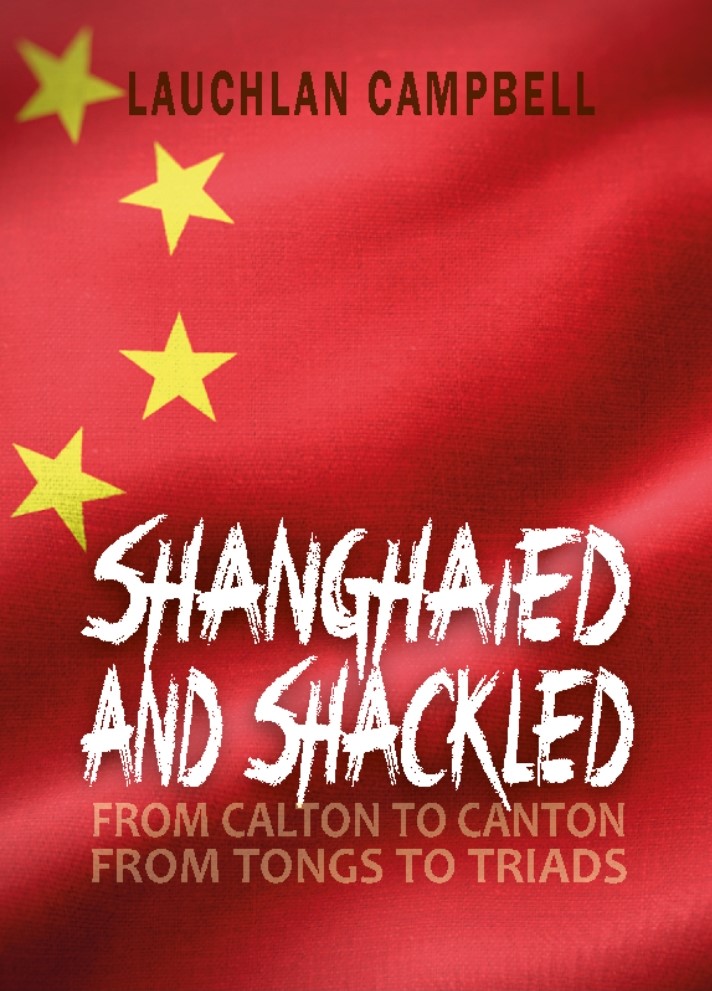
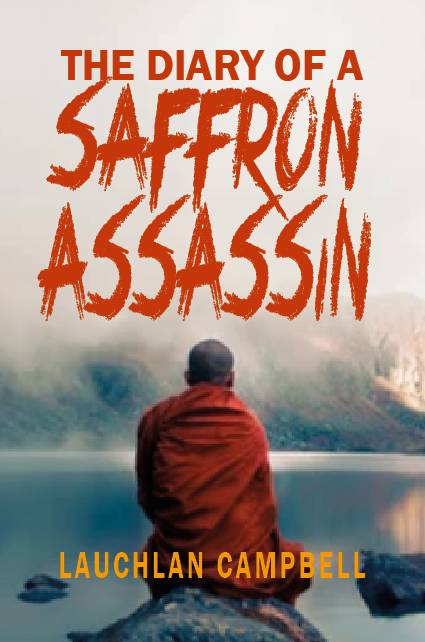
You can read two pieces from The Diary of a Saffron Assassin below.
“In the early morning at the fringes of the Thai-Cambodian border, I stood as a silent silhouette against a tapestry of travel and trade. The air hummed like a Buddhist Mantra with the wearied steps of those Cambodian traders returning to their homes. I could see their facial expressions that they couldn’t erase the horrors of the past, each carrying stories in their mind and weighted bags they clasped tightly in their hands. I also carried a load in the recesses of my tormented psyche – a history of violence and trafficking drugs, of prison in China – for crimes I did commit – and a childhood of silent screams. My depleted spirit ached for something good as it ran towards my future. Here, on this tattered edge of a land scarred by history’s cruel hand, I was hopeful that my pilgrimage of peace would sow the seeds of a brighter future. How wrong I was to be.’’
“Running over, Running over, My cup is full of Running over. This was to show that the spirit of the Lord had filled your soul – in my case, it spilled over into dark waters leading down the wrong path to redemption. I needed to be able to sit in silence away from the turmoil of daily life. I didn’t want the temptation with the availability of alcohol and drugs. It was my decision to extract myself from society, meditate, and keep a calm state of mind regardless of what situation I found myself in.
The next morning a gong echoed around the compound which was our sign to get out of bed. We all began walking to the meditation room and sat on the floor. The classes were held by an Indian teacher but he was not actually present, instead, it was recorded on tape. Sitting with my eyes closed I followed the instructions which was to watch the rise and fall of my breath so that my mind wouldn’t get caught up in other outward distractions and to always return to my breathing if it did. The voice of the teacher went on and on. The sound was disturbing and gave me a feeling of disorientation. What was I doing there listening to a recording that was coming from a machine – and why was it haunting me? I took a slow breath to control myself repeating ‘Om Mani Padme Hum’. A mantra that teaches you to transform your impure body, speech, and mind.”
Lauchlan has published two books so far. Both books are available on Amazon.
Search for ‘The Diary of a Saffron Assassin’ and ‘Shanghaied and Shackled’. Lauchlan has asked that people leave reviews of his books on Amazon.
Lauchlan has kindly given us 15 printed copies of The Diary of a Saffron Assassin to send out to people. If you would like a copy, you can:
• email us at engagement@future-pathways.co.uk
• call us on 0808 164 2005 (lines open Monday to Friday, 10am to 4pm)
Please note that the book does mention some instances of abuse.
Being in nature can boost our wellbeing. Here, we share top tips from First Psychology.
Growing plants at home
Taking care of plants can help you feel peaceful and give you a sense of pride. You do not need to have a garden to feel the benefits of growing plants. There are lots of plants that you can grow in your own home to create your own little garden.
Choose a room in your house that gets a lot of sunlight coming in.
• Gather some pots, soil and seeds and you are ready to start.
• You could also go to your nearest plant shop and ask for advice on what to grow or buy a plant or two from there to start you off.
• The best plants to grow inside are leafy green plants or herbs. Or you could grow a cactus as they are easy to look after.
• You could even try growing basil, rosemary, sage, pea shoots, cress or even small chilli peppers.
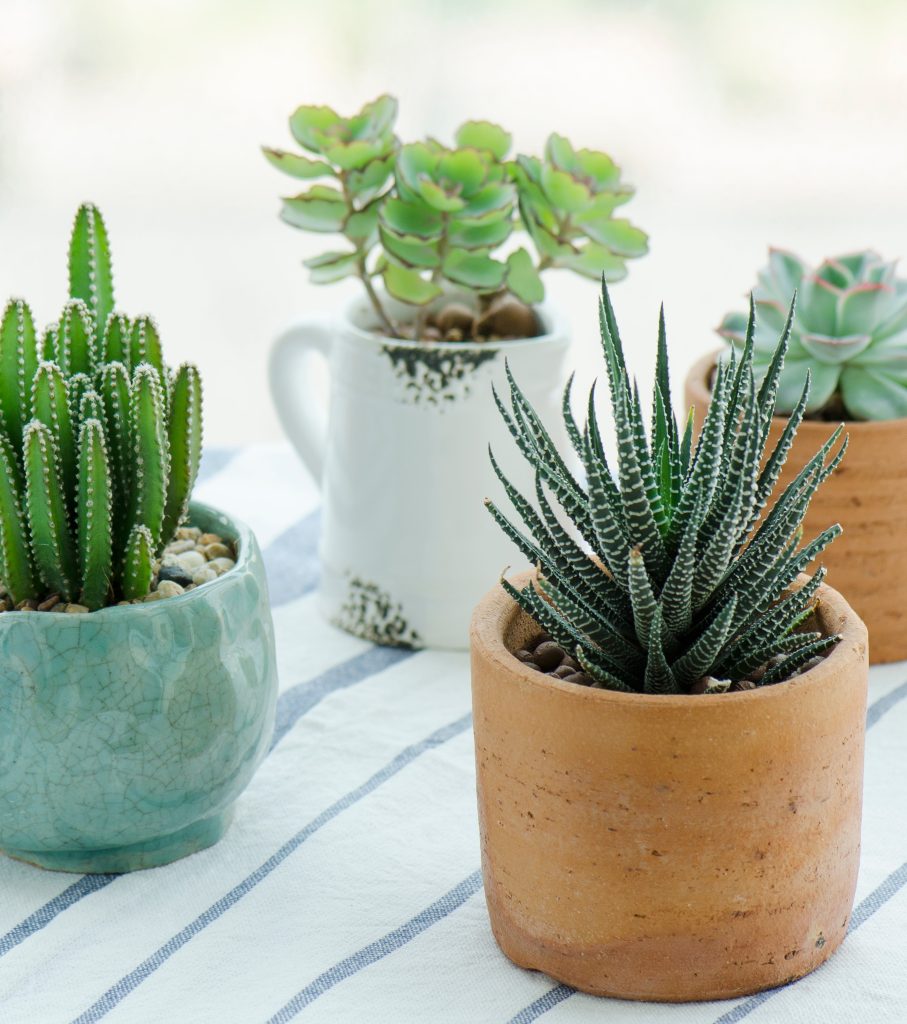
Spend time with animals
Being around animals can help reduce stress. Even if you do not own a pet, you can still spend time with animals. For example, if a friend owns a pet, you could look after it for the day, or you could join them for a walk in the park. You could also visit an animal shelter or a nature reserve if you live near one.

Listen to the sounds of nature
We often do not notice all the natural sounds going on around us. Taking time to sit in nature and focus on these sounds can be a good way to relax. Try to find a quiet spot to sit. This could be a garden, a park or another place close to nature. Sit in silence and focus on each different sound you can hear, one at a time.
For example, the birds singing or wind in the trees. You could even write the sounds down. If you are not able to get out into nature, you could try listening to a recording of nature sounds instead, like birdsong or rain. You can find recordings of nature sounds online.
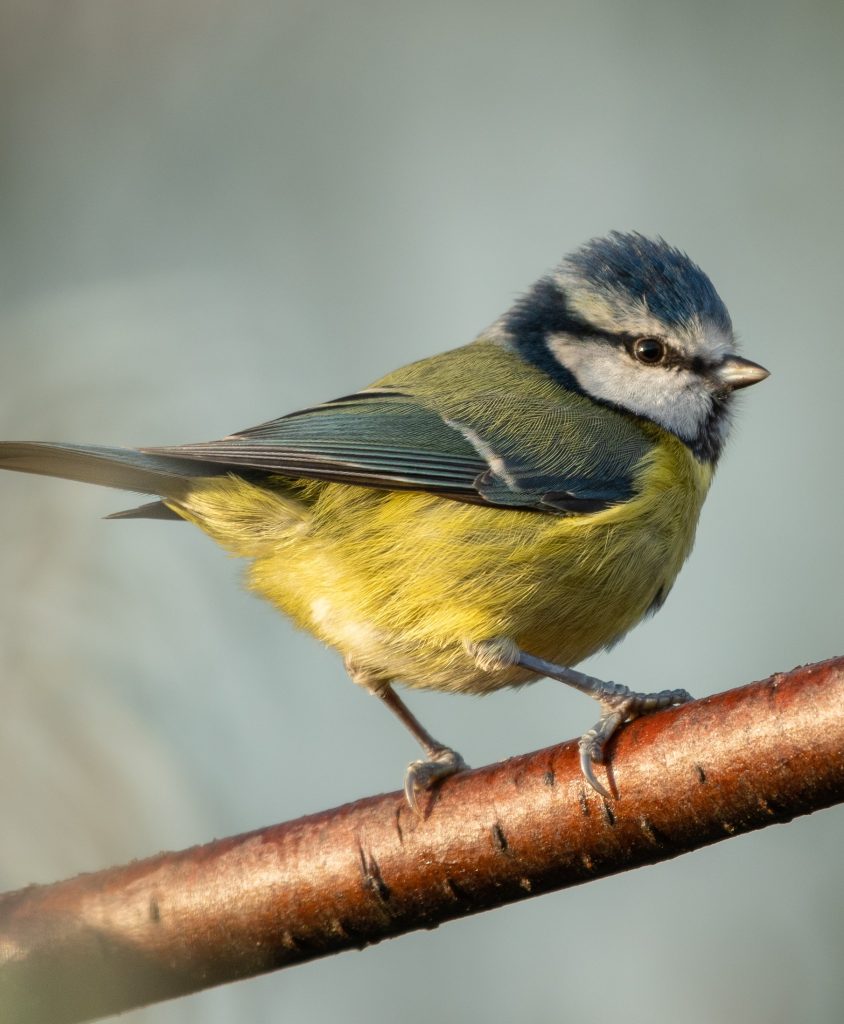
Take nature screen breaks
In our modern lives, we often spend a lot of time in front of screens, like our phones. If you use your phone a lot, you could try to create a new habit. For example, putting your screen down regularly to look out the window and up at the sky for few minutes, or by making sure you put your phone away when you are outside.
Taking breaks from our screens to enjoy nature and the outdoors is an easy way to find a more balanced lifestyle. We also get the positive impact that nature can have on our overall wellbeing.
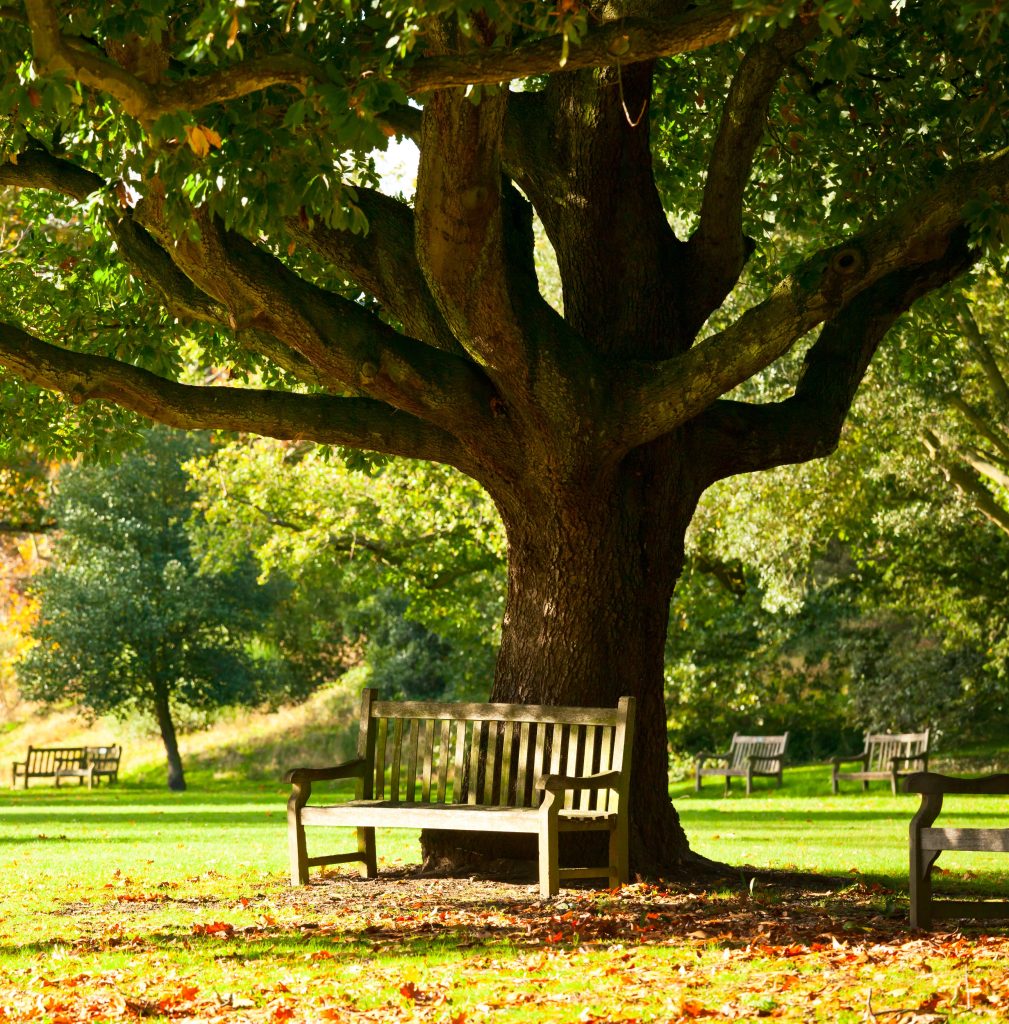
Take part in activities that help look after nature
There are lots of things you can do to help protect and restore natural places. Taking part in these activities can help us feel connected to our natural world and feel a sense of purpose.
Find out what activities are going on in your local community. There are often group activities that anyone can get involved in. They are often run by volunteers and very happy for new people to come along and join in.
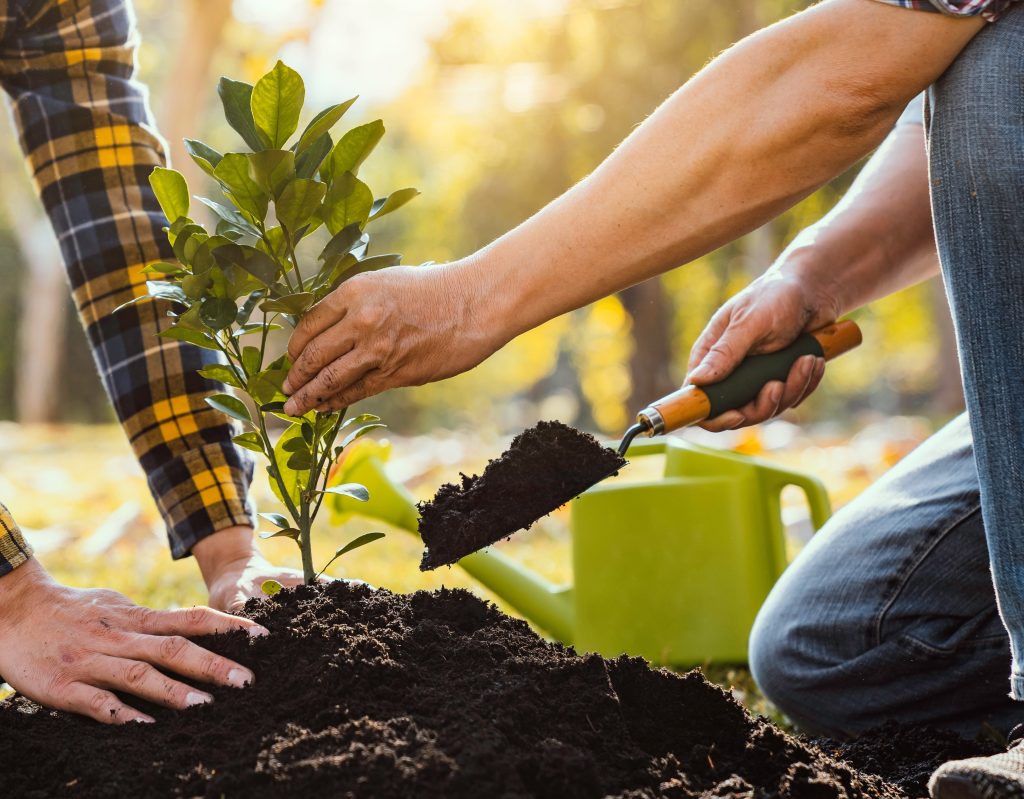

This article is adapted from a booklet called Eco Therapy and Wellbeing written by First Psychology. First Psychology are one of our Delivery Partners. They offer different kinds of therapy, like counselling, psychotherapy and coaching. They are based in Edinburgh but they have offices in lots of places.
You can find out more about them at www.firstpsychology.co.uk
You can see the full booklet at: www.firstpsychology.co.uk/booklets
